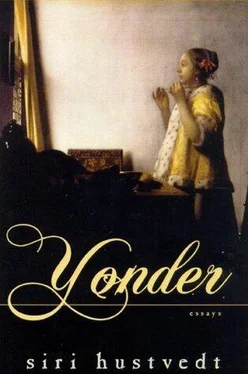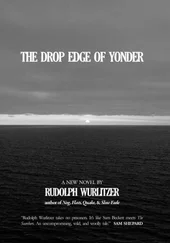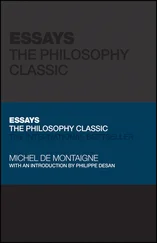‘I was trodden upon and fallen over. I heard a noise of blows, and thought it was a woodcutter cutting down a tree. I could not have said that my name was John Harmon — I could not have thought it — I didn’t know it — but when I heard the blows, I thought of the woodcutter and his axe, and had some dead idea that I was lying in a forest.’
Reading Wegg is like reading the novel in miniature — a plunge into a pool of language in which narrative and metaphor mingle and meaning accumulates until it overflows. As a model, Wegg’s character suggests, first, that there is a relation between bodies going to pieces and the disintegration and pollution of London in general, and, second, that this erosion, both corporeal and environmental, is somehow connected to dislocations in language.
2 The Framework of Society
Good order depends entirely on the correctness of language.
— Confucius
Naming people and things is fraught with difficulty in this novel. Dickens wills us back to the dawn of first questions, to what it means to call the world by name. Identification is Mr. Venus’s business, and it’s not a simple one. His murky shop brings to mind the novel’s initial images of obscurity. Wegg looks into “the dark shop window” and sees only “a muddle of objects vaguely resembling pieces of leather and dry stick, but among which nothing is resolvable into anything distinct.” Venus, however, is undaunted. “I’ve gone on improving myself,” he says, “until both by sight and by name, I’m perfect.” Dickens insists on the double meaning of articulation by making Mr. Venus an encyclopedist of the dead, a comic version of the Enlightenment man classifying decay. Wegg is given a verbal tour of the shop by its owner:
‘A wice. Tools. Bones, warious. Skulls warious. Preserved Indian baby. African ditto … human warious. Cats. Articulated English baby. Dogs. Ducks. Glass eyes, warious. Mummied bird. Oh dear me that the general panoramic view.’ Having so held and waved the candle as all these heterogeneous objects seemed to come forward obediently when they were named and then retire again.
It is Mr. Venus’s voice that makes each object distinct, that calls forth individual objects from the muddle. Individuality comes out of the act of naming, not the other way around, and this ability makes Mr. Venus a creative figure in the book, acknowledged by Wegg as a man with a monumental task: “… you with the patience to fit together on wires the whole framework of society — I allude to the human skelinton.” The “skelinton” is articulated bones. The bones of perception are articulated in words. Words are the “framework of society,” but in this society, something dreadful has happened to them.
The word society refers to a particular group of characters in the novel, and this domain of the Podsnaps and their “bathing” guests, the fraudulent Lammles, and the Veneerings is given the full treatment of Dickens’s crushing satire. When the Veneerings give a dinner party, the scene is described not directly but through its reflection in a mirror. Significantly, this long passage is written as a series of sentence fragments, each one beginning with the word Reflects. A single fragment gives the feeling:
Reflects mature young lady; raven locks and complexion that lights up well when well powdered — as it is carrying on considerably in the captivation of mature young gentleman; with too much nose in his face, too much ginger in his whiskers, too much torso in his waistcoat, too much sparkle in his studs, his eyes, his buttons, his talk, and his teeth.
The use of the mirror damns society as flat, superficial, and illusory, but the reflection is also a field of brokenness, an image of piecemeal, not whole, bodies that returns the reader to Mr Venus’s bone shop. Like Dickens’s joke of the two noses, the mirror subverts the conventions of body image. The dissection of the “mature young gentleman” makes no distinction between his garments and his body parts. There is no inside or outside, only a flat visual impression signaled in the refrain “too much,” which applies equally to eyes and to buttons. The aged Lady Tippins, omnipresent at all of “society’s” functions, is also hard to grasp as a whole being: “Whereabout in the bonnet and drapery announced by her name any fragment of the real woman may be concealed is perhaps known to her maid.” There is inevitably something morbid about these descriptions of “society” and its creatures, a sense that these fragments smell of death. When Tippins rattles her fan, the noise is compared to the rattling of her bones, and when Eugene Wrayburn looks down at the ruined corpse of Radfoot early in the novel, he comments, “Not much worse than Lady Tippins.”
Like many of her cohorts, Tippins is little more than a name. When Veneering decides to run for Parliament, he asks Twemlow, a meek little man, if his powerful cousin Lord Snigsworth “would give his name as a member of my committee. I don’t go so far as to ask for his Lordship; I ask only for his name.” In terms of the narrative, this is entirely reasonable. The name is what counts in society. The gentleman himself is quite dispensable. The cleft between words and the world resists closing. This is the story’s metaphysical ache. Naming is arbitrary: signs appear to refer not to experience but to other signs.
While there is something noble about Mr. Venus’s efforts to articulate bits and pieces of the dead, because his work is an attempt to make order from what is in the end hopelessly “warious,” society resists meaning and order by allowing itself to be ruled by signs that have no referents. In Our Mutual Friend “the whole framework of society” is disintegrating under the weight of its dominant sign — money — which, not surprisingly, acts very much like dust:
That mysterious paper currency which circulates in London when the wind blows, gyrates here and there and everywhere. Whence can it come? Whither can it go? It hangs on every bush, flutters in every tree, is caught flying by electric wires, haunts every enclosure, drinks at every pump, cowers at every grating, shudders upon every plot of grass, seeks rest in vain behind legions of iron rails. In Paris where nothing is wasted, costly and luxurious city though it be, but where wonderful human ants creep out of holes and pick up every scrap, there is no such thing. There it blows only dust.
As the dominant cultural fiction of developed societies, money is an ideal nonsensical sign. Dickens penetrates the peculiar fact that paper can be exchanged for something real, that money serves as a society’s founding gibberish, what Marx called “the general confounding and compounding of all things — the world upside down.” But money is just one of a host of meaningless signs. One empty letter gives birth to the next. Veneering, for example, buys entrance to Parliament so that “he may write a couple of initials after his name at the extremely cheap rate of two thousand five hundred per letter.” L.S.D. is exchanged for M.P. :
Why money should be so precious to an ass so dull as to exchange it for no other satisfaction, is strange; but there is no animal so sure to get laden with it, as the Ass who sees nothing written on the face of the earth, but the three dry letters L.S.D., not Luxury, Sensuality, Dissoluteness, which they so often stand for, but the three dry letters.
Dry letters are everywhere. Dickens had a penchant for mysterious initials, acronyms, for alphabet jokes and pure nonsense. He brings his reader close to the abstractness of signs, to the surprise that these markings can be interpreted at all. As a young man, he studied shorthand, and the account of his struggles with that new alphabet is revealing. He called them “the most despotic characters I have ever known”:
Читать дальше












